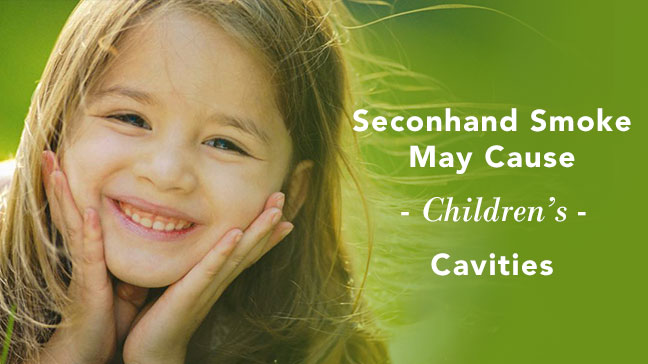Could secondhand smoking really cause cavities?
Believe it or not, studies have recently shown that both maternal and secondhand smoking may literally be causing cavities in your children. We all knew secondhand smoke was bad for many reasons, but this finding comes at quite a surprise. In any case, let’s just use this as another reason to quit smoking overall.
Diving right into the studies, the overall consensus is that children who are exposed to secondhand smoke are far more likely to develop cavities by the age of three. The increased risk for cavities in children exposed to household secondhand smoke was roughly one and a half times what we would normally see in children. Another study found that exposure to smoke at four months of age causes a twofold increase in the risk of cavities.
It gets even more shocking
Considering that secondhand smoking is now linked with cavities in children, one might wonder just how often are children exposed to secondhand smoke. According to this study, the answer is a staggering 40% of children. In addition, 30% of all non-smokers are routinely exposed to secondhand smoke in the household or at work. These numbers are simply too high, especially when we are considering the detrimental effects of secondhand smoke that are not even related to oral health.
How exactly does secondhand smoking cause cavities? Well the answer is actually quite simple when you look at the findings. Secondhand smoke causes the following changes to your oral health:
- Directly influencing and altering the balance of microorganisms in your mouth
- Causes inflammation of the oral membrane
- Impairs salivary gland function
- Decreases vitamin C levels in the body
- Causes general immune dysfunction
What to take away from these findings
At our clinic we always respect our patient’s privacy in their personal matters, but we always try to educate patients in how they can better protect themselves and their families from unnecessary health risks. The evidence seems to be fairly clear, with several studies showing that secondhand smoke does indeed contribute to cavities in children. It is our hope that these findings will help push those parents out there who are on the fence about quitting to actually take the leap, for the sake of the children.
